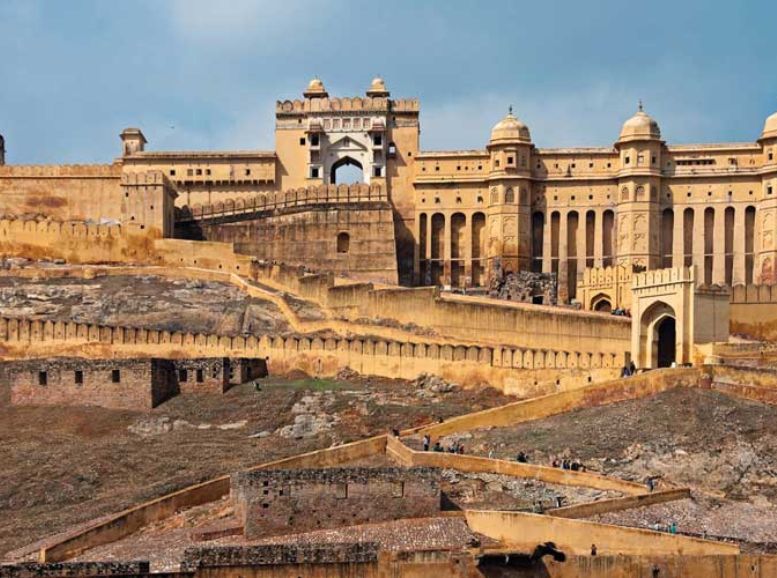Rajasthan’s arid embrace cradles Ajmer, a cultural gem where India’s heritage unfolds in vibrant tapestry. Ancient monuments stand as silent storytellers lining labyrinthine streets, while colorful festivals and age-old traditions weave a charm that entices travelers from across the globe. Embark on an unforgettable exploration with us as we delve into the heart of Ajmer, the Cultural City.
How to reach:
Air: Ajmer itself doesn’t have an airport. However, Jaipur International Airport is about 135 kilometers away. Taxis and buses are readily available to take you to Ajmer from the airport, with a travel time of 2-3 hours depending on traffic.
Train: Ajmer Junction Railway Station offers convenient connections to major Indian cities like Delhi, Mumbai, Jaipur, and Ahmedabad. Frequent trains make Ajmer a great choice for domestic and international tourists.
Road: Ajmer boasts a well-maintained road network, connecting it to various cities in Rajasthan and neighboring states. State-run buses, private taxis, and cabs can take you to Ajmer from nearby locations like Jaipur, Udaipur, and Jodhpur. This scenic route offers flexibility and comfort, perfect for those seeking a leisurely journey.
Local Transport: Once in Ajmer, navigating the city is a breeze. Auto-rickshaws, cycle-rickshaws, and taxis are readily available. Exploring the central areas on foot is also an option, as many attractions are conveniently close by.
Best time to visit:
Winter (October to February): Ajmer basks in its peak tourist season during winter. Pleasant weather with daytime temperatures between 15°C and 25°C makes exploring the city’s crown jewels like Ajmer Sharif Dargah, Ana Sagar Lake, and Taragarh Fort a delight. Evenings turn cozy, perfect for wandering vibrant bazaars and indulging in local treats. Winter also ushers in festivals like the Urs at the Dargah, further enriching the cultural tapestry.
Spring (March to April): Spring paints Ajmer with warmer hues, with daytime temperatures ranging from 20°C to 30°C. This season offers comfortable weather for sightseeing and outdoor activities, although temperatures can rise towards April’s end. Blooming flowers and flourishing greenery transform the city into a picturesque paradise, ideal for nature enthusiasts and photographers.
Summer (May to June): Summer throws a blanket of hot and dry weather over Ajmer, with daytime temperatures often exceeding 40°C. While the scorching heat might deter some, it’s a good time to explore museums, art galleries, and historical monuments that offer respite from the sun’s fury. If you must visit during summer, pack light clothes, stay hydrated, and avoid peak-day outdoor activities.
Monsoon (July to September): The monsoon washes away the summer heat, transforming Ajmer into a verdant haven with occasional showers. Temperatures stay relatively cool, ranging from 25°C to 35°C, though humidity can be high. Outdoor activities might be limited by rain, but the monsoon unveils Ajmer’s natural beauty – a rejuvenated Ana Sagar Lake and the surrounding hills come alive. Checking weather forecasts and road conditions before your visit during this season is advisable.
Attractions:
Ajmer Sharif Dargah:
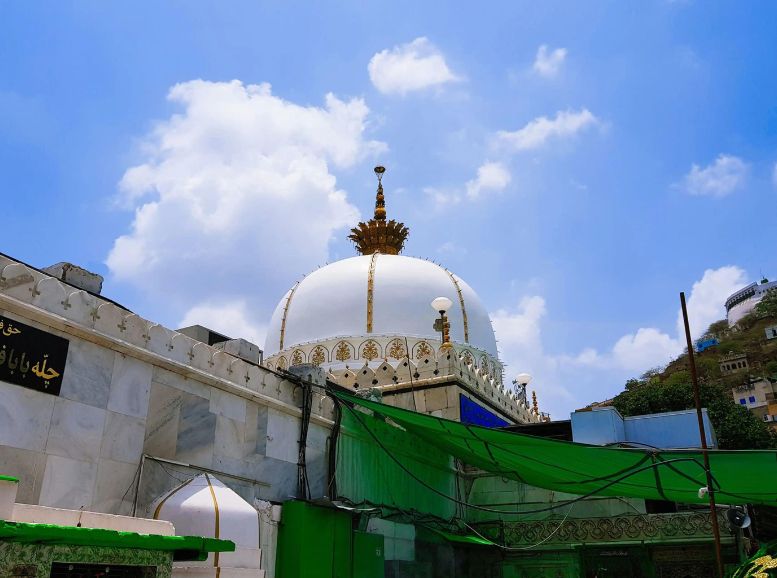
The Dargah, also revered as Dargah Sharif or Ajmer Sharif, stands as one of India’s most sacred Sufi shrines. This final resting place of Khwaja Moinuddin Chishti, a highly esteemed Sufi saint, beckons millions of pilgrims and devotees annually. Beyond its serene atmosphere and profound spiritual significance, the Dargah offers a unique cultural immersion. Visitors of all faiths are welcome to experience the rich traditions of Sufism, a mystical Islamic path renowned for its message of love, tolerance, and unity.
Ana Sagar Lake:
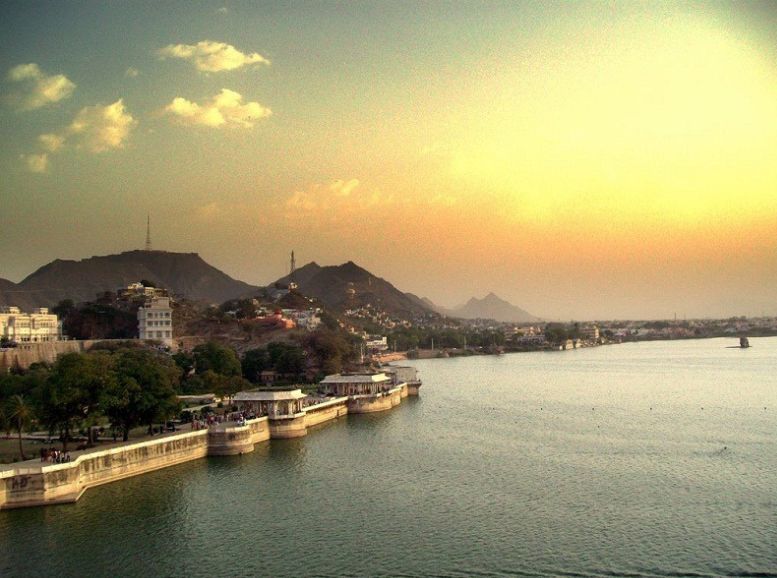
Ajmer’s heart shimmers with Ana Sagar Lake, a captivating man-made wonder. Steeped in history, the lake was built by Anaji Chauhan, grandfather of Prithviraj Chauhan. Lush gardens, marble pavilions, and historical gems like Daulat Bagh Garden and Baradari Pavilion grace its shores. Beyond tranquil boat rides and soaking in the cityscape, photography buffs can capture the lake’s vibrant life and the majestic Aravalli Hills turning golden at sunset.
Taragarh Fort:
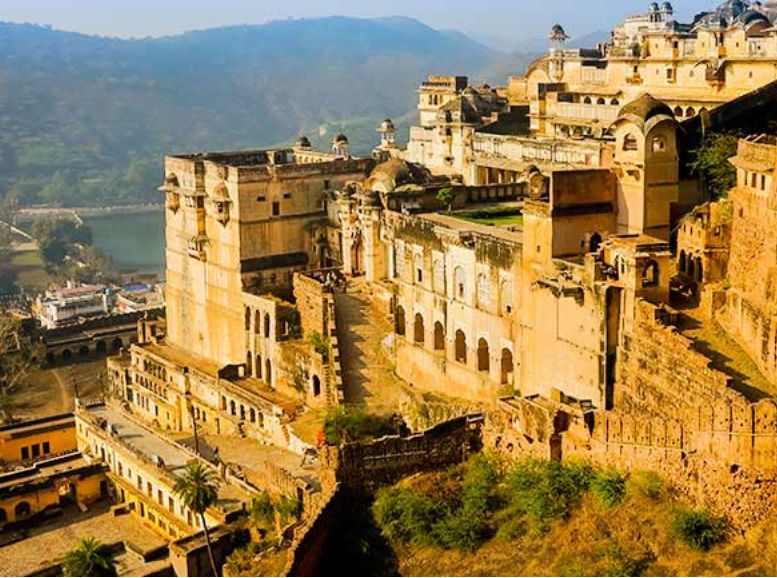
Atop a steep hill, Taragarh Fort, Ajmer’s watchful sentinel, stands guard. Dating back to the 7th century, this “Star Fort” isn’t just about breathtaking views of the city and Aravalli Hills. It’s an open-air museum, showcasing impressive architecture, intricate carvings, and remnants whispering of a glorious past. Explore its every corner, and let the fort’s stories come alive. History buffs and photography enthusiasts, prepare to be enthralled.
Ajmer Jain Temple:
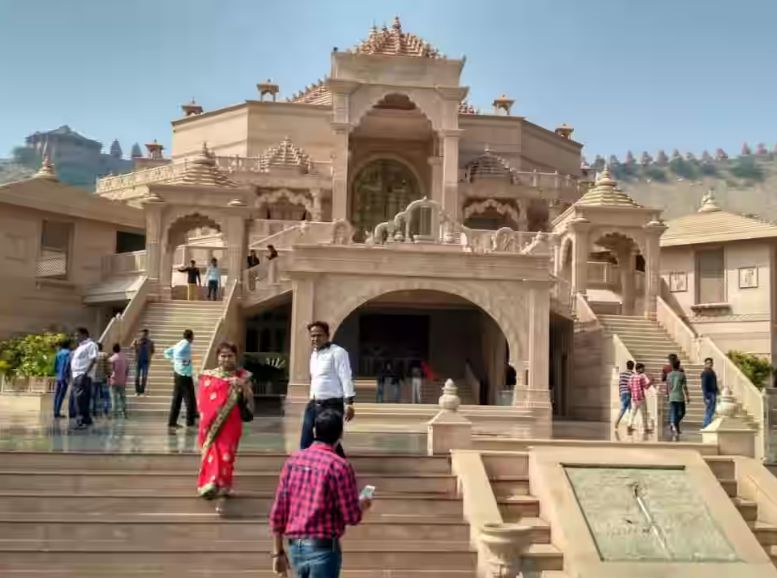
Jain Temple, also known as Soniji Ki Nasiyan, isn’t just stunning architecture and ornate interiors. Dedicated to Lord Rishabhdev, the first of the 24 Jain tirthankaras, this temple is a treasure trove. Marvel at the gold-plated wooden figures depicting the Jain concept of the universe, a testament to meticulous craftsmanship. The intricate murals and exquisite sculptures further enrich the experience, offering a profound glimpse into the rich Jain heritage and philosophy.
Adhai Din Ka Jhonpra:
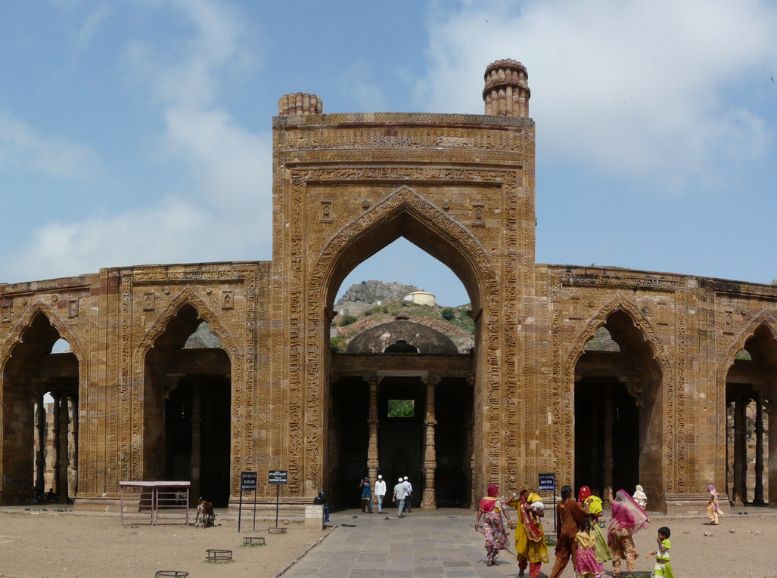
Adhai Din Ka Jhonpra, a historic mosque near Ajmer, stands as a monument to cultural fusion. Built in the 12th century by Sultan Ghori, it’s famed for its unique architectural style, seamlessly blending Hindu and Islamic elements. The mosque’s name, translating to “two-and-a-half-day hut,” has a legendary origin of swift construction. Explore the intricate carvings, arches, and pillars adorning the facade, each a testament to the region’s rich heritage and the harmonious coexistence of faiths that once flourished here.
Nareli Jain Temple:
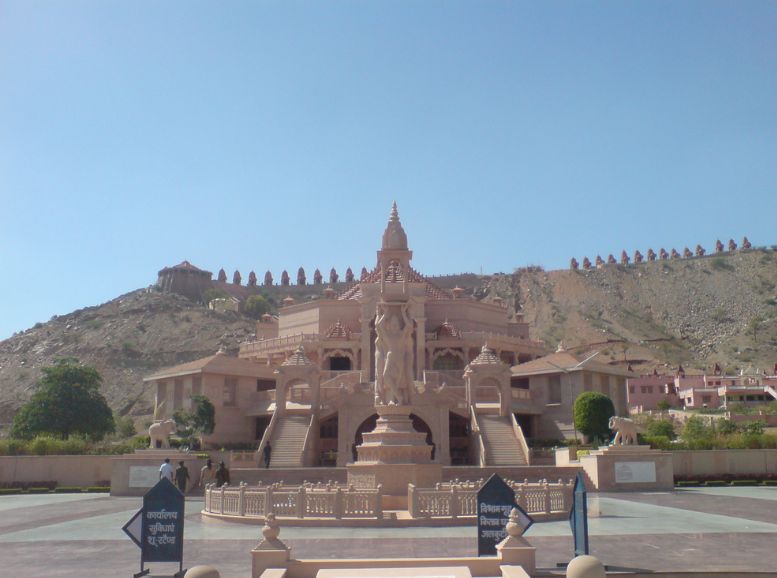
Nareli Jain Temple, a modern marvel on Ajmir’s outskirts, echoes the grandeur of Mount Abu’s Dilwara Temples. This architectural gem stuns with a stunning marble facade adorned with meticulous carvings and sculptures. But Nareli Jain Temple offers more than visual beauty. The complex is a haven of peace, where visitors can find serenity in the dharamshala (guesthouse), meditate in tranquil halls, or wander landscaped gardens, all offering a welcome escape from the city’s bustle.
Foy Sagar Lake:
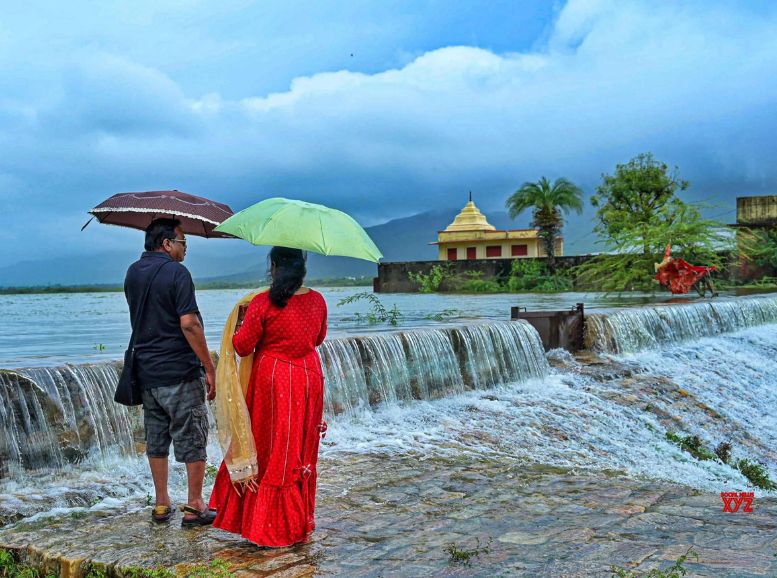
This place’s tranquility extends to Foy Sagar Lake, a scenic haven roughly 5 kilometers away. This 19th-century marvel, built by the ingenious English engineer Mr. Foy to combat famine, exemplifies the power of human foresight. Lush greenery and the majestic Aravalli Hills frame the lake, creating a picture-perfect scene. Enjoy peaceful picnics, scenic boat rides, or leisurely walks along the promenade. Birdwatchers will find this a haven for diverse avian life. Foy Sagar Lake offers a delightful escape for nature lovers and photography enthusiasts seeking a break from the city’s vibrancy.
Loacl experiences:
- Culinary Delights: Tantalize your taste buds with Rajasthani specialties like dal bati churma and laal maas at local eateries or vibrant street food stalls.
- Market Magic: Immerse yourself in the bustling energy of Ajmer’s bazaars, particularly the iconic Dargah Bazaar, where treasures await in the form of handicrafts, textiles, and unique souvenirs.
- Cultural Kaleidoscope: Experience the vibrant tapestry of Rajasthan through folk music, dance performances, and captivating puppet shows offered at various venues across the city.
- Culinary Secrets Unveiled: Unleash your inner chef by participating in a Rajasthani cooking class. Learn the secrets of using spices and creating flavorful dishes from local experts.
- Artisanal Delights: Delve into the heart of Rajasthani craftsmanship by visiting artisan workshops. Witness the creation of pottery, intricate block prints, and beautiful jewelry firsthand. You can even support local talent by purchasing these beautiful handmade souvenirs.
- Inner Peace Through Practice: Embrace tranquility by joining yoga or meditation sessions offered at ashrams and wellness centers. Find rejuvenation and restore your inner balance.
- A Walk Through Time: Embark on a guided heritage walk to discover the rich history and architectural marvels of Ajmer. Explore ancient havelis, ornate temples, and historical monuments, each whispering stories of a bygone era.
Travel tips:
- Cultural Sensitivity: Ajmer’s rich culture is deeply entwined with tradition. Respect local customs, dress modestly at religious sites (especially the Dargah), and be mindful of etiquette.
- Hydration is Key: Rajasthan boasts a hot and dry climate, especially in summer. Carry a refillable water bottle and stay hydrated throughout your explorations.
- Navigating the Dargah: If visiting the Sharif Dargah, be aware of peak hours (festivals) that draw larger crowds. Consider early mornings or evenings for a calmer experience.
- Market Magic: Bargaining is a common practice in Ajmer’s bazaars. Don’t hesitate to negotiate politely with vendors to score the best deals.
- Street Food Savvy: While street food is tempting, prioritize hygiene. Choose vendors with clean practices and opt for freshly prepared dishes.
- Personal Belongings: As with any tourist destination, pickpockets might operate in crowded areas. Keep your belongings secure, avoid flaunting valuables, and stay vigilant in crowds.
- Plan Your Stay: Especially during peak season, booking accommodation in advance secures availability and better rates. Ajmer offers a range of options, from luxury hotels to budget guesthouses.
- Respectful Photography: Some attractions, like the Dargah, may have photography restrictions. Always follow posted guidelines to avoid any issues.
- Language Bridge: While English is spoken, learning a few basic Hindi phrases can enhance your experience and communication with locals.
- Travel Prepared: Consider travel insurance before your trip. It can provide protection against unforeseen circumstances like trip cancellations, medical emergencies, or lost luggage.
Conclusion:
Immerse yourself in the cultural heart of Rajasthan, where history and spirituality merge seamlessly. Discover the iconic Ajmer Sharif Dargah, the tranquil Ana Sagar Lake, and ancient forts steeped in history. Indulge in the flavors of Rajasthani cuisine, find serenity through yoga, or explore lively bazaars brimming with artisanal treasures. Ajmer isn’t just a destination; it’s a transformative journey waiting to unfold. Depart with cherished memories of timeless alleys, enchanting melodies, and genuine hospitality. Experience the essence of Ajmer, The Cultural City, by planning your adventure with Xplro.com! Let us guide you through the city’s rich tapestry, crafting an unforgettable exploration tailored to your preferences.
FAQs:
What makes Ajmer Sharif Dargah significant?
- Dargah is revered as the final resting place of Khwaja Moinuddin Chishti, a prominent Sufi saint. It holds immense spiritual importance and attracts pilgrims seeking blessings and solace.
When is the ideal time to visit Ajmer?
- The winter months, from October to February, offer the best weather for exploring Ajmer, with pleasant temperatures and minimal rainfall.
How can I reach Ajmer?
- It is accessible by air via the Jaipur International Airport, by rail through Ajmer Junction Railway Station, and by road with well-connected bus routes.
What are Ajmer’s main attractions?
- Boasts attractions like Ajmer Sharif Dargah, Ana Sagar Lake, Taragarh Fort, Ajmer Jain Temple, Adhai Din Ka Jhonpra, and Foy Sagar Lake.
What characterizes Rajasthani cuisine, and where can I find it in Ajmer?
- Rajasthani cuisine is renowned for its rich flavors and spices. Visitors can enjoy authentic dishes like dal bati churma and laal maas at local eateries and restaurants across Ajmer.
Are there bustling markets or bazaars in Ajmer?
- Yes, Ajmer features vibrant markets like the Dargah Bazaar, offering handicrafts, textiles, and souvenirs.
What cultural experiences await in Ajmer?
- Cultural delights include traditional music and dance performances, cooking classes for Rajasthani cuisine, and exploring artisan workshops.
Is Ajmer a safe destination for travelers?
- It is generally safe, but it’s advisable to exercise caution, especially in crowded areas, and keep belongings secure.
What cultural etiquettes should I observe in Ajmer?
- Visitors should dress modestly, especially at religious sites, and respect local customs and traditions.
Can I take photos at Ajmer Sharif Dargah?
- Photography is permitted in some areas, but restrictions apply, particularly around the sanctum sanctorum.
What offbeat attractions can I explore in Ajmer?
- Offbeat options include the Nareli Jain Temple, heritage walks in the old quarter, and scenic spots like Foy Sagar Lake.
Are guided tours or activities available in Ajmer?
- Yes, visitors can enjoy guided heritage walks, culinary tours, and other activities, which can be arranged through local operators or hotels.




